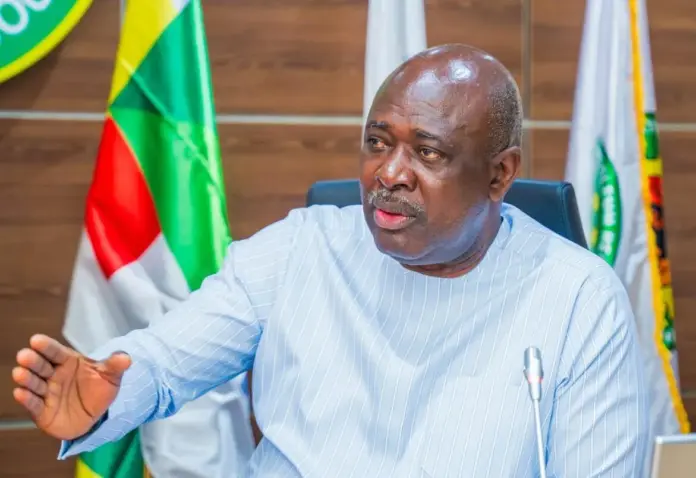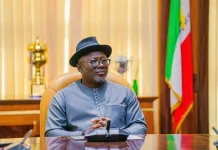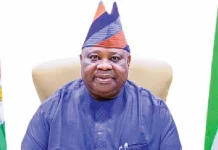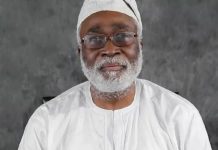A transparent, stable, and investor-friendly petroleum industry is what Nigeria has reaffirmed its commitment to.
The commitment was made by Senator Heineken Lokpobiri, the Minister of State for Petroleum Resources (Oil), who spoke as President Bola Ahmed Tinubu’s keynote speaker at the Africa Energy Week in Cape Town, South Africa.
Nigeria is, he claimed, “open for business” and aggressively pursuing policies that give priority to long-term growth, efficiency, and investment in the oil industry.
This meeting is more than simply a conference, he said, adding that it is a call to action. He emphasized that Nigeria is prepared to lead African reform and development in addition to taking part in the global energy market.
In a statement, Senator Lokpobiri—signed by his Special Adviser on Media and Communication, Nneamaka Okafor—described the ambitious policy initiatives put in place during President Tinubu’s administration, especially the Petroleum Industry Act (PIA), which offers investors a transparent and predictable fiscal and regulatory environment.
The PIA has established a fair contractual framework, enhanced regulatory supervision, host community interaction, and license transparency, he said.
“The structural, financial, regulatory, and legal changes we are implementing are what set Nigeria apart today,” the Minister stated.
The upstream industry in Nigeria is exhibiting signs of a robust revival. Launched in October 2024, the “Project One Million Barrels” effort has increased daily crude oil output to 1.7 to 1.83 million barrels per day, with a remarkable 300,00 barrels per day rise in July 2025 alone. In addition, there are already 50 operating drilling rigs by July 2025, up from 31 in January, which is a definite indication that changes are generating value in the industry.
In particular, the Minister said that the recent asset sales by International Oil Companies (IOCs) had opened up more than $5.5 billion in FIDs in a matter of months.
“These are transfers of confidence, capability, and ownership instead of just assets,” he said. As a result of the divestitures, the country’s production has already increased by almost 200,000 barrels per day.
Senator Lokpobiri emphasized the importance of infrastructure, industrial development, and localized value chains in order to help Africa retain more value from its petroleum resources.
He referred to Africa’s annual expenditure of more than $120 billion on hydrocarbons—mostly from imports—as a lost chance for economic change.
Read Also: Benue Monarch Wants Soldiers Withdrawn From Kwande Over Mourners’ Deaths
Given that Africa possesses around $4 trillion in domestic wealth, including pension and insurance funds, he argued for increased intra-African cooperation and funding. He stated, “The question is not whether there are funds available, but rather how we can direct them into profitable investments on our continent.”
Regarding the global energy discussion, the Minister advocated for equity and balance.
He emphasized that the story should change to focus on a varied energy mix rather than the depletion of any resource. He emphasized that “the availability, affordability, and accessibility of all forms of energy should be the focus.”
While developing a diverse and sustainable energy basis, he made it clear that Nigeria, like other countries, will continue to use its oil resources wisely.
Nigeria is a major energy player in Africa, according to Senator Lokpobiri.
According to him, “We are providing opportunities at scale, reform with consistency, incentives with clarity, local participation with respect, and a modernizing vision with purpose.”
He made a direct call to international investors: “Come to Nigeria. Participate in the revolution of energy.
Nigeria’s open-door policy, aggressive reforms, and lofty goals are setting the continent’s energy destiny on a daring course.
Join Television Nigerian Whatsapp Now
Join Television Nigerian Facebook Now
Join Television Nigerian Twitter Now
Join Television Nigerian YouTUbe Now





